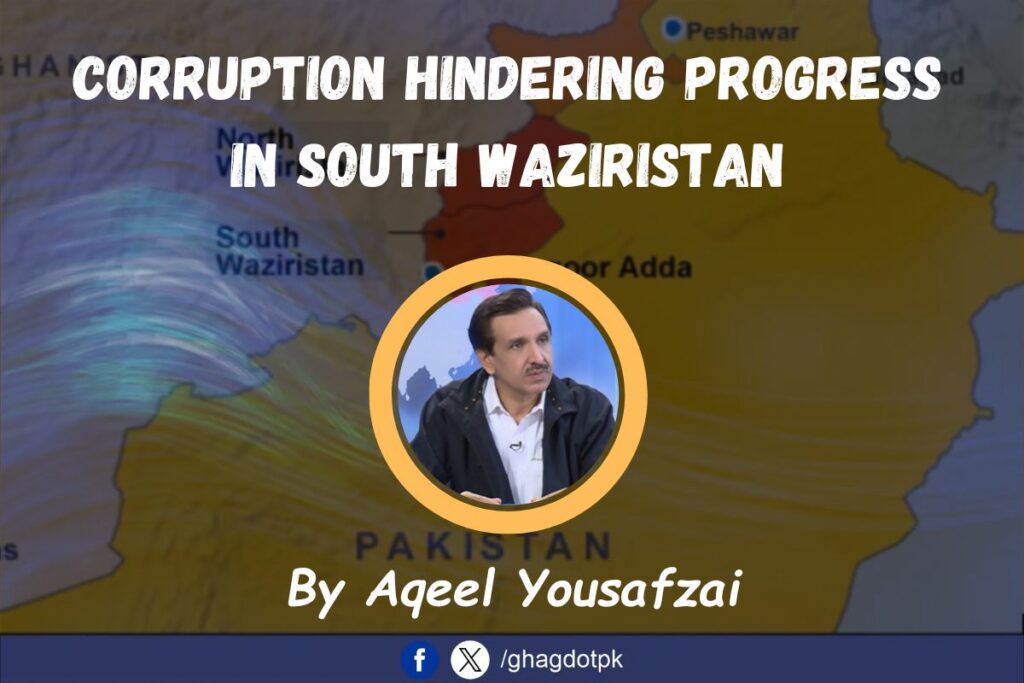By Aqeel Yousafzai
South Waziristan, part of Pakistan’s formerly tribal regions merged into Khyber Pakhtunkhwa (KP), stands at a crossroads of development and dysfunction. Despite significant funding and integration efforts, systemic corruption and administrative inefficiencies continue to hinder the region’s progress. Reports from the districts of Upper and Lower South Waziristan paint a bleak picture of government departments mired in bureaucratic delays and personal rivalries, particularly in forestry, agriculture, health, and education sectors.
A troubling pattern has emerged, where officials appointed from within the local population allow personal grievances and rivalries to obstruct their duties. This phenomenon, while deeply rooted in the socio-political fabric of the area, has dire consequences for public welfare. Citizens are left grappling with inaccessible facilities and unfulfilled promises, as development projects remain confined to paperwork rather than being implemented on the ground. The persistence of these issues highlights the urgent need for comprehensive administrative reform.
Corruption complaints in these districts have surged, with citizens accusing officials of negligence and malpractice. The forestry sector is plagued by illegal logging and mismanagement, threatening the fragile ecosystem. In education, schools suffer from chronic neglect, with teacher absenteeism and underfunding pushing literacy rates well below the provincial average. Health services are no better, with poorly equipped clinics leaving residents vulnerable to preventable diseases. The billions allocated under the Accelerated Implementation Program (AIP) seem to dissipate without delivering tangible outcomes, raising questions about oversight and accountability.
Attempts to expose these inefficiencies through local media have been met with threats and suppression, silencing the very voices that could drive change. Journalists reporting on corruption face intimidation, further deepening the culture of impunity. This lack of transparency not only alienates the public but also undermines faith in the government’s commitment to improving the region.
The people of South Waziristan are demanding decisive action. Reassigning local officials to eliminate personal biases, conducting rigorous audits to root out corruption, and establishing robust mechanisms for project oversight are vital steps. These measures, while challenging, are necessary to rebuild trust and ensure that public funds translate into real progress.
The challenges in South Waziristan reflect broader issues within the governance structure of Pakistan’s merged districts. Addressing these systemic flaws is not merely an administrative imperative but a moral one. Without urgent intervention, the dream of prosperity and development for this historically marginalized region will remain unfulfilled. A concerted effort is required to translate integration into tangible benefits, ensuring that the people of South Waziristan see their aspirations realized through effective governance and sustainable progress.






